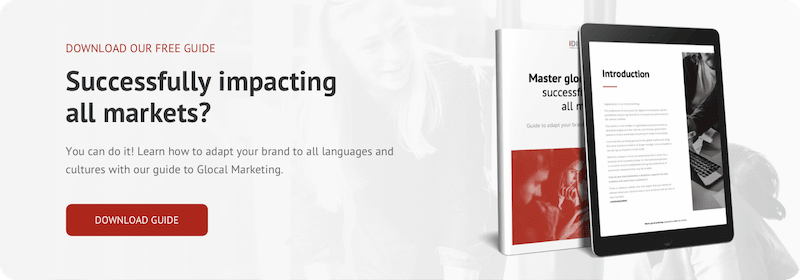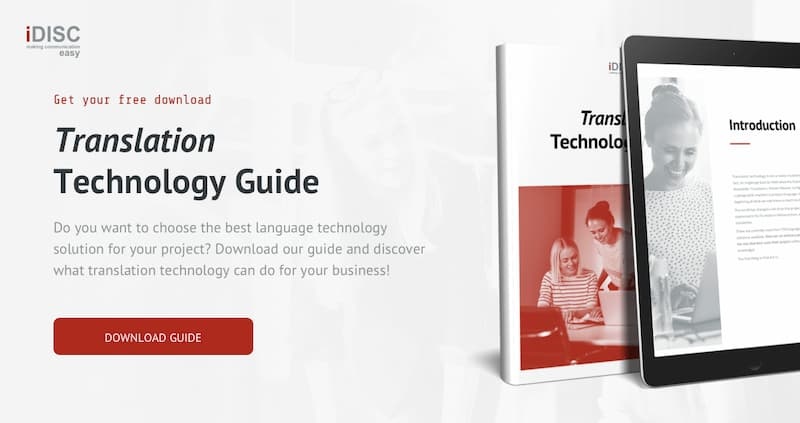Our intention with this article was to cover everything the future holds for marketing, but the truth is that using the word "future" is not entirely accurate.
The future of marketing is already here and it is being shaped by artificial intelligence (AI).
AI is changing the way companies communicate with their customers and it is shaking up marketing itself.
With the right technology, AI can improve the effectiveness and efficiency of digital marketing campaigns.
And, we can assure you that this is something your competitors already know.
Stick around to discover the latest on the applications of AI in marketing and how to use it to your advantage.
AI for digital marketing: what happens at B2B companies?
As we know, B2B (Business to Business) marketing is about companies selling their products and services to other companies, and not to the end consumer, as is the case with B2C (Business to Consumer) marketing.
In B2B marketing, you need to build trusting and long-lasting relationships with other companies, and this entails significantly longer sales cycles compared to B2C. This is why AI in B2B marketing is extremely useful.
AI-based marketing, such as predictive analytics and customer segmentation, allows companies to analyze large amounts of data and gain insights that would otherwise be much more difficult and time-consuming to obtain.
4 ways to use AI for marketing
Technology is constantly evolving and, if you want your company to become a market player, you need to stay on top of developments.
The evolution from big data to data-driven marketing
Big data refers to the set of technologies for mass-mining, collection, analysis and management of internet user-generated data. With AI, we can identify user behavior types to create specific behavioral patterns.
Everything we do on the internet leaves behind a footprint, which, when properly analyzed, can be used by companies for more effective marketing.
Marketing strategies based on AI and big data mining are called data-driven marketing.
This makes it possible to obtain user data from any of their online interactions across different channels. This information helps to make better marketing decisions.
This point underpins the rest of the strategies that we are going to cover below, which all involve the use of AI for marketing.
Omnichannel strategy: all consumer touchpoints matter
Today, consumers have access to multiple shopping channels, which has made omnichannel and multichannel strategies essential for successful marketing, especially in the B2B sector.
Multichannel refers to a marketing strategy where a company uses multiple channels to reach its customers, such as an online store, a physical store, social media and email. This strategy makes it easier for consumers to interact with the company through the medium of their choice, providing them with a more personalized and convenient shopping experience.
On the other hand, omnichannel is a strategy focusing on delivering a consistent and unified shopping experience across all touchpoint channels. This means that the company provides a uniform and consistent shopping experience, regardless of the channel through which the consumer reaches them, without losing information.
This allows companies to reach a much wider audience by making each shopping experience highly personalized.
This would be impossible without technology, as tools and platforms are needed to collect, analyze and use customer data that will in turn build that personalized and consistent shopping experience based on their preferences.
With AI we can run analytics on user-provided data for a better understanding of their purchase intent. In addition, increasingly sophisticated chatbots can be implemented into websites, which can simulate a close-to-bespoke customer service.
Marketing automation using AI
Marketing automation is defined as a process that uses various technologies to automate marketing campaigns through different channels, such as email, social networks or online ads. AI in marketing automation helps to streamline the actions of the different phases of the purchase process, from lead acquisition to qualification and nurturing.
Although it may seem contradictory, these forms of automation end up humanizing communication, since it becomes more personalized and direct for either potential customers or the real customers we want to retain.
Some applications for AI in marketing automation are:
- Streamlining lead management in terms of capturing, scoring and conversion.
- Dynamic content creation.
- It helps to identify key accounts, especially useful for ABM (Account Based Marketing), as it is a highly personalized marketing strategy focused on contacting high-value key accounts that match the ideal customer profile.
More and more companies are focusing on technologies that facilitate marketing automation, and we are in no doubt that this investment will increase in the coming years. Software such as Mailchimp or HubSpot is an everyday tool in B2B marketing departments.
AI-powered user experience (UX)
One of the key factors that determine the success of a business is the user experience. The way a user interacts with a website or app can be the difference between a successful conversion or a frustrating experience for that person.
This is why tons of companies are turning to AI to better understand what users prefer and to make it easier for them to increase their conversion rate.
What does AI bring to the user experience?
AI can be used to collect and analyze user-provided data: pages visited by the user, whether they filled out a form, whether they visited the blog and what content interests them, along with lots of other variables. With AI we can analyze this data and provide a personalized solution in real time by identifying what type of user they are and showing them related and personalized content on the website.
Websites offering a solid user experience have much higher conversion rates. In other words, they manage to reel in and convince users to perform actions that will turn them into leads with which they can work to convert them into customers.
Ah! And one more important fact: if the majority of users who visit your website like it, Google will like it too.
Search engines analyze the interactions and responses of users when visiting a website, and measure variables such as the time spent on the page or the number of clicks they make on it. You need to consider all of this for your website to move up on search rankings and results, making you more visible.
There is no better way to combat AI than with AI, right?
We hope you found this article useful. You can find lots more on our blog.
As you know, the future and the present belong to technology, so is your company up to speed?
iDISC is a translation agency innovating in how we use translation technology. If you want to learn more about us, please feel free to get in touch.




